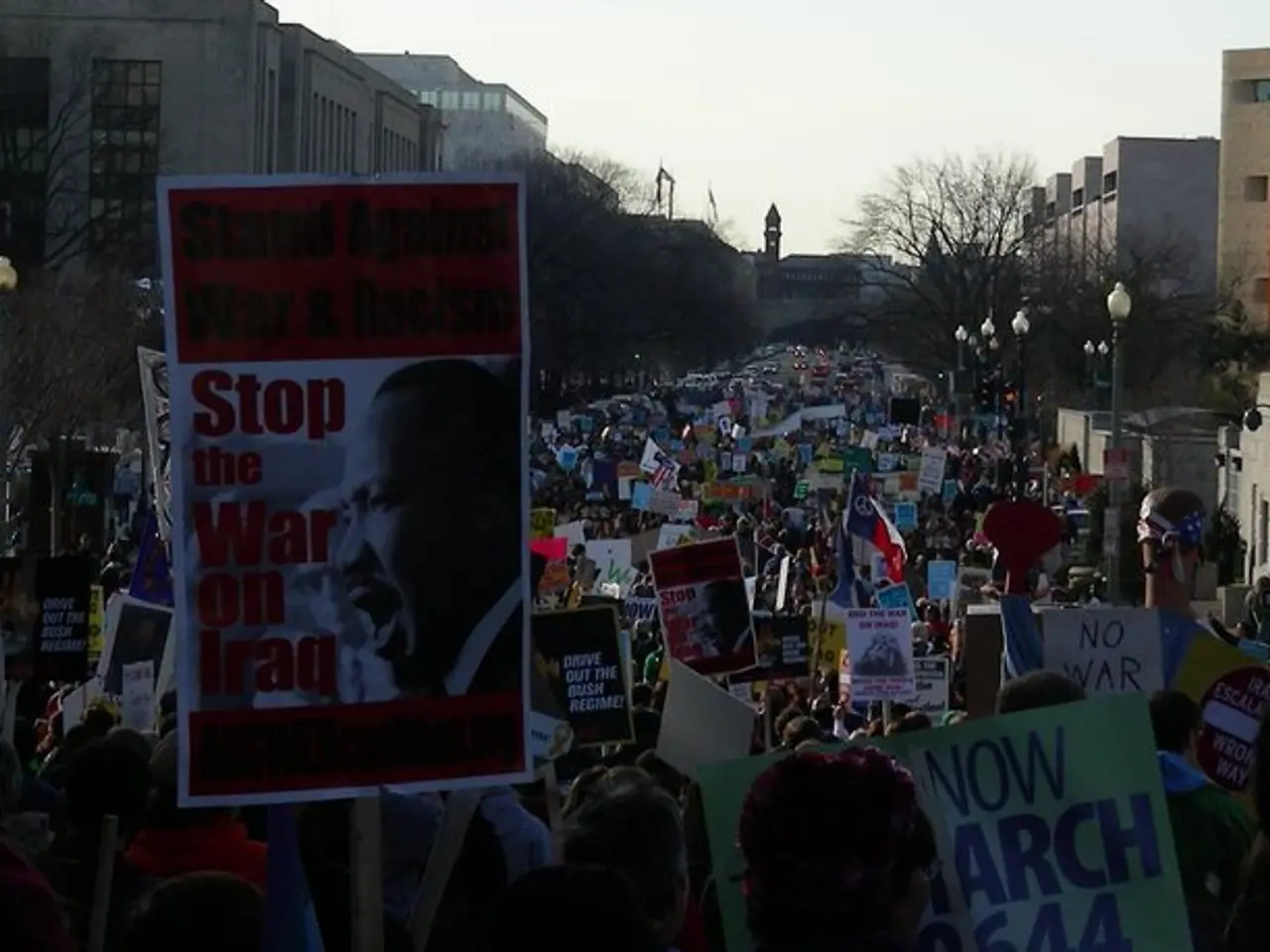Liberal majority of Wisconsin Supreme Court nullifies century-and-a-half old abortion prohibition
In a landmark decision on July 2, 2025, the Wisconsin Supreme Court struck down the 1849 abortion ban, ruling that it had been impliedly repealed by modern legislation regulating abortion in detail. The ruling, made in a 4-3 decision, brings clarity to the current abortion law in Wisconsin.
The 1849 ban, codified as § 940.04(1), criminalized the intentional destruction of an unborn child, excluding the mother. However, the Court's decision means that this statute no longer bans abortion in the state.
The modern regulatory framework, which consists of statutes enacted over the past 50 years, now governs abortion in Wisconsin. This shift in law follows a lawsuit filed by Wisconsin Attorney General Josh Kaul, a Democrat, in 2023, arguing that the 1849 ban was trumped by abortion restrictions enacted during the nearly half-century that Roe v. Wade was in effect.
The Court's ruling was significant, as it effectively replaced the 19th-century statute with the modern regulatory framework. The majority stated that the ban was superseded by a newer state law, effectively rendering it obsolete.
The outcome of any forthcoming Planned Parenthood lawsuit remains to be seen, but it is unlikely to revive the 1849 ban. The lawsuit, which is still pending, is expected to focus on the current statutory and regulatory landscape, not the 1849 ban itself.
It is worth noting that Susan Crawford, a Democrat, was elected to the court in April, ensuring liberals will maintain their 4-3 edge until at least 2028. Crawford, who has not been sworn in yet, will play a pivotal role in a separate Planned Parenthood of Wisconsin lawsuit challenging the 1849 ban's constitutionality.
The ban was in effect until 1973, when it was nullified by the US Supreme Court's Roe v. Wade decision. Since then, abortions have been available in Wisconsin, with the state Supreme Court's decision providing more certainty that they will remain legal.
The ruling came after a Dane County Circuit Judge Diane Schlipper ruled in 2023 that the 1849 ban outlaws feticide but not consensual abortions. Kaul specifically cited a 1985 law that essentially permits abortions until viability as a key factor in his lawsuit.
The debate over the 1849 ban was heated, with some arguing that it could coexist with newer abortion restrictions, while others maintained that it was an outdated law that should be struck down. The conservative argument, which used the US Supreme Court's 2022 decision to overturn Roe as a basis, was ultimately not successful.
In conclusion, the Wisconsin Supreme Court's decision to strike down the 1849 abortion ban provides clarity on the current abortion law in the state. Abortions have been available in Wisconsin since Schlipper's ruling, but the state Supreme Court decision provides more certainty that abortions will remain legal. The outcome of any forthcoming Planned Parenthood lawsuit will likely further clarify the state's abortion laws.
Politics surrounding policy-and-legislation took center stage when the Wisconsin Supreme Court struck down the 1849 abortion ban, with the decision being highly debated in general-news outlets. The court's ruling effectively replaced the outdated 19th-century statute with the modern regulatory framework that has governed abortion in Wisconsin since the 1980s.







